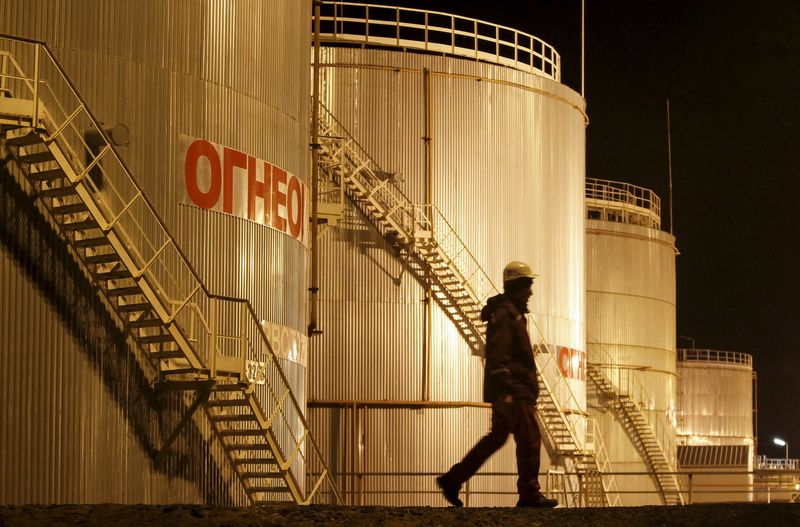(updates with Brent settlement)
By Barani Krishnan
Investing.com - What to do if Iran ever becomes a major problem to the oil rally has always been on the mind of longs in the market.
Now, the question is resurfacing with greater urgency as Washington approaches its final opportunity to rein in Tehran’s nuclear plan with a carrot that will allow the Mullahs to legitimately put their oil exports back on the market.
New York-traded West Texas Intermediate settled down 99 cents, or 1.1%, at $91.32 per barrel on Monday, after reaching a 2014 high of $93.17 on Friday. Prior to the slide, WTI had risen seven weeks in a row for a 30% gain.
“WTI could go down to between $85 and $82 if we continue getting positive headlines on the Iran talks,” said John Kilduff, partner at New York energy hedge fund Again Capital.
London-traded Brent, the global benchmark for oil, was down 58 cents, or 0.6%, at $92.69, after a seven-year peak at $93.70 on Friday. Brent gained 27% over the seven previous weeks.
Crude prices fell for the first time in seven sessions after reports indicating the likelihood of an imminent U.S.-Iran nuclear deal from talks that have dragged on for more than a year since President Joe Biden took office.
"This can't go on forever because of Iran's nuclear advances,” an official from the U.S. State Department, speaking on conditions of anonymity, was quoted as saying by Reuters on Monday. “This is not a prediction. It's not a threat. It's not an artificial deadline. It's just a requirement."
The JCPOA is short-hand for the 2015 nuclear deal between Tehran and the five permanent members of the U.N. Security Council — the United States, the United Kingdom, Russia, France, and China — along with Germany.
The agreement was clinched during the term of former U.S. president Barack Obama, a Democrat, and was canceled in 2018 when his successor Donald Trump, a Republican, was in office. Biden, who took office in 2021, allowed talks to resume with Iran but kept Trump’s sanctions against Tehran in place, to the surprise of many.
But as an advance sweetener towards a deal, Washington has already restored sanction waivers this time for foreign companies doing nuclear power business with Tehran to allow international cooperation in non-military nuclear energy utilization.
But Reuters noted in a report from last week that the waiver also aims to also make it harder for Iran to use its nuclear sites for weapons development.
For the record, Iran maintains that its nuclear are only for power generation purposes, although the International Atomic Energy Agency says Tehran will soon approach atomic bomb-grade capability if not stopped.
"Given the pace of Iran's advances, its nuclear advances, we only have a handful of weeks left to get a deal -- after which point it will unfortunately be no longer possible to return to the JCPOA and to recapture the nonproliferation benefits that the deal provided for us," said the State Department official quoted by Reuters.
